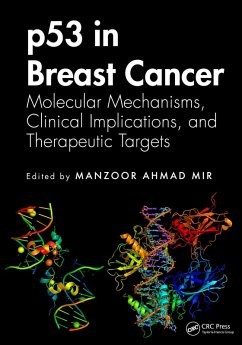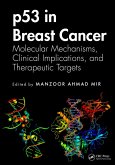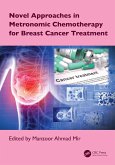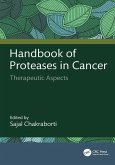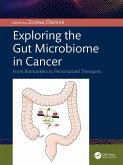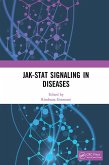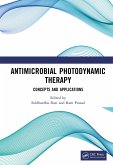p53 in Breast Cancer (eBook, ePUB)
Molecular Mechanisms, Clinical Implications, and Therapeutic Targets
Redaktion: Mir, Manzoor Ahmad
168,95 €
168,95 €
inkl. MwSt.
Sofort per Download lieferbar

84 °P sammeln
168,95 €
Als Download kaufen

168,95 €
inkl. MwSt.
Sofort per Download lieferbar

84 °P sammeln
Jetzt verschenken
Alle Infos zum eBook verschenken
168,95 €
inkl. MwSt.
Sofort per Download lieferbar
Alle Infos zum eBook verschenken

84 °P sammeln
p53 in Breast Cancer (eBook, ePUB)
Molecular Mechanisms, Clinical Implications, and Therapeutic Targets
Redaktion: Mir, Manzoor Ahmad
- Format: ePub
- Merkliste
- Auf die Merkliste
- Bewerten Bewerten
- Teilen
- Produkt teilen
- Produkterinnerung
- Produkterinnerung

Bitte loggen Sie sich zunächst in Ihr Kundenkonto ein oder registrieren Sie sich bei
bücher.de, um das eBook-Abo tolino select nutzen zu können.
Hier können Sie sich einloggen
Hier können Sie sich einloggen
Sie sind bereits eingeloggt. Klicken Sie auf 2. tolino select Abo, um fortzufahren.

Bitte loggen Sie sich zunächst in Ihr Kundenkonto ein oder registrieren Sie sich bei bücher.de, um das eBook-Abo tolino select nutzen zu können.
This book discusses the pivotal role of the p53 gene in breast cancer, covering its impact on disease progression, metabolism, and cellular mechanisms. It explores strategies against p53 mutations, including targeted therapies and immunotherapy. This book serves as an important source for researchers of oncology and molecular biology.
- Geräte: eReader
- mit Kopierschutz
- eBook Hilfe
Andere Kunden interessierten sich auch für
![p53 in Breast Cancer (eBook, PDF) p53 in Breast Cancer (eBook, PDF)]() p53 in Breast Cancer (eBook, PDF)168,95 €
p53 in Breast Cancer (eBook, PDF)168,95 €![Novel Approaches in Metronomic Chemotherapy for Breast Cancer Treatment (eBook, ePUB) Novel Approaches in Metronomic Chemotherapy for Breast Cancer Treatment (eBook, ePUB)]() Novel Approaches in Metronomic Chemotherapy for Breast Cancer Treatment (eBook, ePUB)52,95 €
Novel Approaches in Metronomic Chemotherapy for Breast Cancer Treatment (eBook, ePUB)52,95 €![Handbook of Proteases in Cancer (eBook, ePUB) Handbook of Proteases in Cancer (eBook, ePUB)]() Handbook of Proteases in Cancer (eBook, ePUB)178,95 €
Handbook of Proteases in Cancer (eBook, ePUB)178,95 €![Handbook of Proteases in Cancer (eBook, ePUB) Handbook of Proteases in Cancer (eBook, ePUB)]() Handbook of Proteases in Cancer (eBook, ePUB)178,95 €
Handbook of Proteases in Cancer (eBook, ePUB)178,95 €![Exploring the Gut Microbiome in Cancer (eBook, ePUB) Exploring the Gut Microbiome in Cancer (eBook, ePUB)]() Exploring the Gut Microbiome in Cancer (eBook, ePUB)52,95 €
Exploring the Gut Microbiome in Cancer (eBook, ePUB)52,95 €![JAK-STAT Signaling in Diseases (eBook, ePUB) JAK-STAT Signaling in Diseases (eBook, ePUB)]() JAK-STAT Signaling in Diseases (eBook, ePUB)54,95 €
JAK-STAT Signaling in Diseases (eBook, ePUB)54,95 €![Antimicrobial Photodynamic Therapy (eBook, ePUB) Antimicrobial Photodynamic Therapy (eBook, ePUB)]() Antimicrobial Photodynamic Therapy (eBook, ePUB)52,95 €
Antimicrobial Photodynamic Therapy (eBook, ePUB)52,95 €-
-
-
This book discusses the pivotal role of the p53 gene in breast cancer, covering its impact on disease progression, metabolism, and cellular mechanisms. It explores strategies against p53 mutations, including targeted therapies and immunotherapy. This book serves as an important source for researchers of oncology and molecular biology.
Dieser Download kann aus rechtlichen Gründen nur mit Rechnungsadresse in A, B, BG, CY, CZ, D, DK, EW, E, FIN, F, GR, HR, H, IRL, I, LT, L, LR, M, NL, PL, P, R, S, SLO, SK ausgeliefert werden.
Produktdetails
- Produktdetails
- Verlag: Taylor & Francis eBooks
- Erscheinungstermin: 24. Dezember 2024
- Englisch
- ISBN-13: 9781040261989
- Artikelnr.: 72255794
- Verlag: Taylor & Francis eBooks
- Erscheinungstermin: 24. Dezember 2024
- Englisch
- ISBN-13: 9781040261989
- Artikelnr.: 72255794
- Herstellerkennzeichnung Die Herstellerinformationen sind derzeit nicht verfügbar.
Dr. Manzoor Ahmad Mir is presently working as a scientist and head of department at the Department of Bioresources, University of Kashmir. He holds master's degree in Zoology with Gold Medal from HNBG Central University and got his Ph.D. from Jawaharlal Nehru University New Delhi and CSIR-Institute of Microbial Technology, Chandigarh, in the field of Immunopathology. His research interest is cancer biology with specialization in drug repurposing and combination therapy of breast cancer and to elucidate the molecular mechanism behind it, besides use of natural agents in treating cancer. He is also working on expression pattern and prognostic significance of chemokines/cytokines of CDKs in breast cancer, as well as the virtual screening of drugs for cancer treatment and their mechanistic elucidation. He has published more than 50 high-impact research papers and book chapters, in recognition of which he has received several awards. Dr. Manzoor has authored more than 16 books with international publishers. He is on the editorial board and reviewer of some prestigious journals and has been an invited speaker at various scientific meetings/conferences within India and abroad. He is member of many scientific organizations and societies, like American Association of Cancer Research, the Royal British Society, American Association of Clinical Oncology, International Immunology Association, etc. Dr Manzoor was awarded Teachers Associate Research Excellence Fellowship (TARE) by DST Govt of India and Summer Research Fellowship Programme (SRFP-2019) by Indian Academy of Sciences and National Science Academy. Dr Manzoor has developed Massive Open Online Course (MOOCs) in immunology, human genetics, and endocrinology for UG students sanctioned by UGC-Consortium for Educational Communication (CEC) SWAYAM Ministry of HRD Govt of India. He has research and teaching experience of 15 years in cancer biology, animal cell and tissue technology, molecular modelling and drug design, comparative immunology.
Chapter 1: Role of p53 in Cancer Metabolism Chapter 2: Exploring the
Intricacies of p53 and its Connection to Breast Cancer Chapter 3: P53
Pathways in the Progression of Breast Cancer Chapter 4: Mutational
Alterations in p53: Their Impact on the Development of Breast Cancer
Chapter 5: P53 and Cell Death Regulation: Managing Apoptosis in Breast
Cancer Chapter 6: The Contribution of p53 to DNA Repair and Genomic
Stability in Breast Cancer Chapter 7: Interaction of Mutant p53 with
Transcription Factors and DNA Repair Enzymes Chapter 8: P53 Control of Cell
Cycle Dynamics in Breast Cancer: Maintaining a Balance Between
Proliferation and Arrest Chapter 9: The Complex Interplay Between Mutant
p53, p63, and p73, and Their Effect on Cellular Processes Chapter 10: Role
of Post-Translational Modifications in Regulation of Mutant p53 Chapter 11:
Genetic Alterations Affecting p53 and Emerging Perspectives on Epigenetic
Control of p53 in Breast Cancer Chapter 12: Targeted Therapies Against
Mutated p53 in Breast Cancer Chapter 13: The Mevalonate Pathway's
Involvement in Cancer Progression in the Context of Mutant p53 Chapter 14:
Interactions and Implications of p53 in Hormonal Signaling Pathways in
Breast Cancer Chapter 15: p53 as a Diagnostic Biomarker in Breast Cancer
Chapter 16: The Impact of Nutrition on p53 Activity: Implications for
Preventing and Treating Breast Cancer Chapter 17: The Interplay Between p53
and the Tumor Microenvironment in Progressing Breast Cancer Chapter 18:
Current State and Future Avenues of p53 Gene Therapy in Breast Cancer
Chapter 19: Insights from Genetic Studies: The Role of p53 in Hereditary
Breast Cancer Syndrome Chapter 20: Bridging Bench to Bedside in Breast
Cancer Therapy: Translational Insights into p53 Research.
Intricacies of p53 and its Connection to Breast Cancer Chapter 3: P53
Pathways in the Progression of Breast Cancer Chapter 4: Mutational
Alterations in p53: Their Impact on the Development of Breast Cancer
Chapter 5: P53 and Cell Death Regulation: Managing Apoptosis in Breast
Cancer Chapter 6: The Contribution of p53 to DNA Repair and Genomic
Stability in Breast Cancer Chapter 7: Interaction of Mutant p53 with
Transcription Factors and DNA Repair Enzymes Chapter 8: P53 Control of Cell
Cycle Dynamics in Breast Cancer: Maintaining a Balance Between
Proliferation and Arrest Chapter 9: The Complex Interplay Between Mutant
p53, p63, and p73, and Their Effect on Cellular Processes Chapter 10: Role
of Post-Translational Modifications in Regulation of Mutant p53 Chapter 11:
Genetic Alterations Affecting p53 and Emerging Perspectives on Epigenetic
Control of p53 in Breast Cancer Chapter 12: Targeted Therapies Against
Mutated p53 in Breast Cancer Chapter 13: The Mevalonate Pathway's
Involvement in Cancer Progression in the Context of Mutant p53 Chapter 14:
Interactions and Implications of p53 in Hormonal Signaling Pathways in
Breast Cancer Chapter 15: p53 as a Diagnostic Biomarker in Breast Cancer
Chapter 16: The Impact of Nutrition on p53 Activity: Implications for
Preventing and Treating Breast Cancer Chapter 17: The Interplay Between p53
and the Tumor Microenvironment in Progressing Breast Cancer Chapter 18:
Current State and Future Avenues of p53 Gene Therapy in Breast Cancer
Chapter 19: Insights from Genetic Studies: The Role of p53 in Hereditary
Breast Cancer Syndrome Chapter 20: Bridging Bench to Bedside in Breast
Cancer Therapy: Translational Insights into p53 Research.
Chapter 1: Role of p53 in Cancer Metabolism Chapter 2: Exploring the
Intricacies of p53 and its Connection to Breast Cancer Chapter 3: P53
Pathways in the Progression of Breast Cancer Chapter 4: Mutational
Alterations in p53: Their Impact on the Development of Breast Cancer
Chapter 5: P53 and Cell Death Regulation: Managing Apoptosis in Breast
Cancer Chapter 6: The Contribution of p53 to DNA Repair and Genomic
Stability in Breast Cancer Chapter 7: Interaction of Mutant p53 with
Transcription Factors and DNA Repair Enzymes Chapter 8: P53 Control of Cell
Cycle Dynamics in Breast Cancer: Maintaining a Balance Between
Proliferation and Arrest Chapter 9: The Complex Interplay Between Mutant
p53, p63, and p73, and Their Effect on Cellular Processes Chapter 10: Role
of Post-Translational Modifications in Regulation of Mutant p53 Chapter 11:
Genetic Alterations Affecting p53 and Emerging Perspectives on Epigenetic
Control of p53 in Breast Cancer Chapter 12: Targeted Therapies Against
Mutated p53 in Breast Cancer Chapter 13: The Mevalonate Pathway's
Involvement in Cancer Progression in the Context of Mutant p53 Chapter 14:
Interactions and Implications of p53 in Hormonal Signaling Pathways in
Breast Cancer Chapter 15: p53 as a Diagnostic Biomarker in Breast Cancer
Chapter 16: The Impact of Nutrition on p53 Activity: Implications for
Preventing and Treating Breast Cancer Chapter 17: The Interplay Between p53
and the Tumor Microenvironment in Progressing Breast Cancer Chapter 18:
Current State and Future Avenues of p53 Gene Therapy in Breast Cancer
Chapter 19: Insights from Genetic Studies: The Role of p53 in Hereditary
Breast Cancer Syndrome Chapter 20: Bridging Bench to Bedside in Breast
Cancer Therapy: Translational Insights into p53 Research.
Intricacies of p53 and its Connection to Breast Cancer Chapter 3: P53
Pathways in the Progression of Breast Cancer Chapter 4: Mutational
Alterations in p53: Their Impact on the Development of Breast Cancer
Chapter 5: P53 and Cell Death Regulation: Managing Apoptosis in Breast
Cancer Chapter 6: The Contribution of p53 to DNA Repair and Genomic
Stability in Breast Cancer Chapter 7: Interaction of Mutant p53 with
Transcription Factors and DNA Repair Enzymes Chapter 8: P53 Control of Cell
Cycle Dynamics in Breast Cancer: Maintaining a Balance Between
Proliferation and Arrest Chapter 9: The Complex Interplay Between Mutant
p53, p63, and p73, and Their Effect on Cellular Processes Chapter 10: Role
of Post-Translational Modifications in Regulation of Mutant p53 Chapter 11:
Genetic Alterations Affecting p53 and Emerging Perspectives on Epigenetic
Control of p53 in Breast Cancer Chapter 12: Targeted Therapies Against
Mutated p53 in Breast Cancer Chapter 13: The Mevalonate Pathway's
Involvement in Cancer Progression in the Context of Mutant p53 Chapter 14:
Interactions and Implications of p53 in Hormonal Signaling Pathways in
Breast Cancer Chapter 15: p53 as a Diagnostic Biomarker in Breast Cancer
Chapter 16: The Impact of Nutrition on p53 Activity: Implications for
Preventing and Treating Breast Cancer Chapter 17: The Interplay Between p53
and the Tumor Microenvironment in Progressing Breast Cancer Chapter 18:
Current State and Future Avenues of p53 Gene Therapy in Breast Cancer
Chapter 19: Insights from Genetic Studies: The Role of p53 in Hereditary
Breast Cancer Syndrome Chapter 20: Bridging Bench to Bedside in Breast
Cancer Therapy: Translational Insights into p53 Research.
